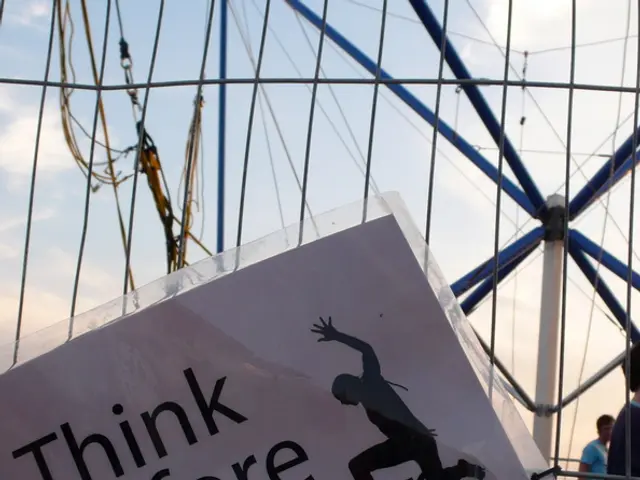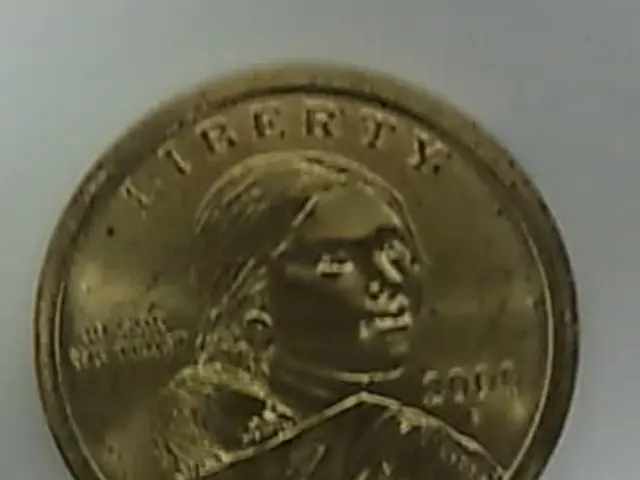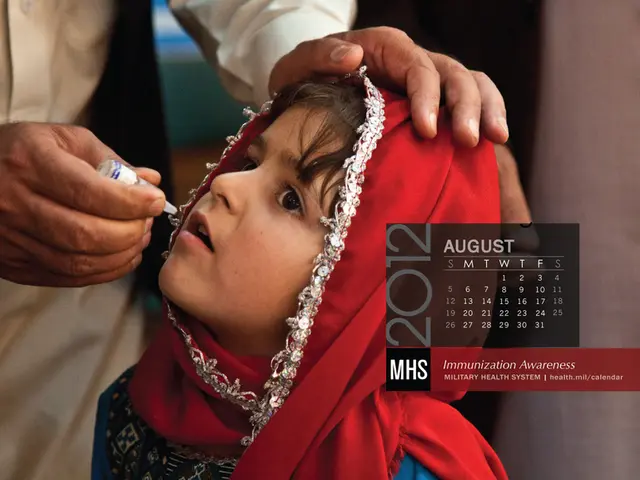Deadly shooting at Jewish Museum sparks debates over domestic terrorism linked to extremist groups
Suspected Israeli Embassy Aide Killer's Political Beliefs Under Scrutiny
WASHINGTON—New details have emerged about the man accused of killing Israeli Embassy aides in Washington, DC, including his previous affiliation with a far-left political group. NPR's domestic extremism correspondent, Odette Yousef, provides insight into the suspect's political leanings.
The suspect, whose name has been associated with someone who was once a member of the Party for Socialism and Liberation (PSL), has sparked debate about the role of far-left ideology in political violence in the United States. In a statement, the PSL disavowed the attack, stating that the suspect's association with the group ended in 2017.
Visiting the building where the suspect is believed to reside in Chicago, Yousef observed multiple signs supporting Palestinian rights, free Palestine, and a ceasefire. There were also indications of support for left-leaning local politicians, including a Democratic socialist.
The rise in political violence in the U.S. has been an ongoing concern, with experts arguing over whether the far right or the far left poses a more significant threat. While data shows that the far right has been responsible for most lethal political violence in the last four decades, Colin Clarke, an analyst with The Soufan Group, warns of a rising trend of far-left militancy as a reaction to the increase in far-right extremism.
This recent attack, however, may represent a trend deviating from the historical patterns. Unlike previous examples of far-left violence that primarily resulted in property damage or minor injuries, the lethal nature of this incident raises concerns about the potential escalation of violent actions tied to leftist ideologies.
Speculation about the motives behind the attack will likely continue as investigators delve deeper into the suspect's background. As the case unfolds, it remains to be seen whether this attack will prompt introspection within leftist circles, as Clarke suggests, or spark further discourse about the role of free speech in the context of potential state countermeasures against perceived extremist groups.
[1] National Consortium for the Study of Terrorism and Responses to Terrorism, "U.S. Extremist Crime, 2012-2019," 2021.[2] U.S. Department of State, "Country Reports on Terrorism 2020," 2021.[3] R. Joyce, "The Berkeley Far-Right/Far-Left Conflict: Neo-Stalinists, Neo-Nazis, and the Birth of the Free Speech Movement," University of California Press, 2019.[4] J. McDevitt, A. Horowitz, and S. Brutschey, "Terrorist Extremism in the United States, 1990-2019," StopTerrorism.gov, 2021.[5] G. Blas, and L. Savage, "Capitol riot suspects charged and investigated: A running list," The Washington Post, 2021.
- The political beliefs of the suspect under investigation for killing Israeli Embassy aides have sparked a debate about the role of far-left ideology in political violence in the United States, given his previous affiliation with the Party for Socialism and Liberation (PSL).
- As the case unfolds, questions about whether this attack will prompt introspection within leftist circles or lead to further discourse about the balance between free speech and countermeasures against perceived extremist groups will likely arise.








